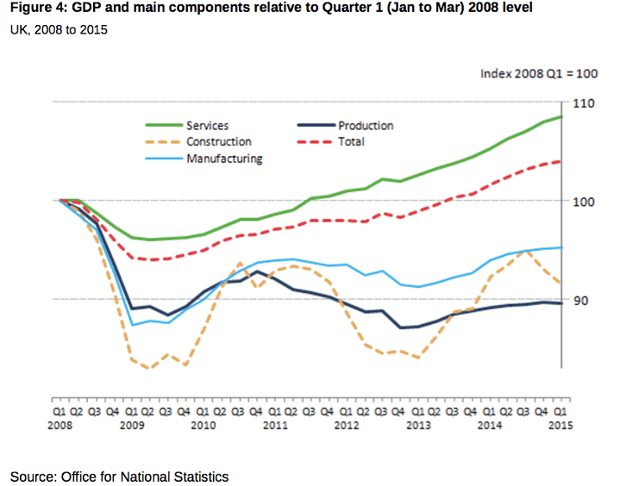Shops, hotels and restaurants contributed two thirds of all growth in the latest quarter.
Which brings us to a couple of big and important points.
The most politically resonant one is that the Tory and Lib Dem government has failed in its ambition to rebalance the economy more towards manufacturing.
The last official figures before the general election show that the manufacturing sector is still 4.8% smaller than before the great crash and recession - whereas the much larger service sector is now even bigger: 8.5% bigger than before the crash.
In other words, we are more dependent on service industries than we've ever been in our history.
And not only have services become a big proportion of the economy, some 78% of it, but they actually contributed more than 100% of all the growth we enjoyed since the end of December (because production and construction made negative contributions).
To be clear, the ascendance of services may not be a disaster: we have many world-beating service businesses, many services are capable of being exported, and services can therefore help the UK to pay its way in the world (something which hasn't happened for 30 years, as you know).
But since the Business Secretary Vince Cable and the Chancellor George Osborne both set great store on increasing the importance to Britain of manufacturing, it is worth pointing out that the shift to the makers has not happened - or at least not yet.
Point number two is a related one: although we should all probably be grateful that we are still spending in shops and cafes, and keeping the economy moving forward, history suggests it will all end in tears if we don't see a revival of other sources of growth - namely exports and business investment.




